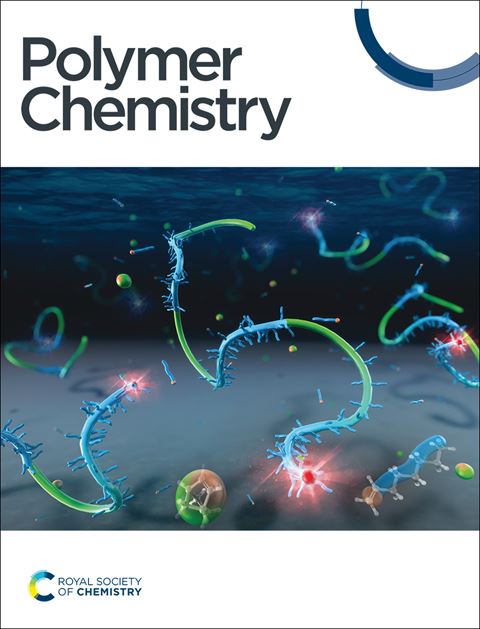超快速热响应,形状记忆和溶剂驱动的Fe3+-海藻酸盐/聚(n -异丙基丙烯酰胺)为基础的水凝胶驱动器
IF 4.1
2区 化学
Q2 POLYMER SCIENCE
引用次数: 0
摘要
近年来,刺激响应型水凝胶在执行器领域得到了广泛的研究,因为它能够在各种外部刺激下产生显著的变形。然而,现有的水凝胶执行器难以满足制备简单、响应速度快和形状记忆功能的要求,这极大地限制了其进一步的应用。本研究通过简单的方法制备了具有超快速热响应、形状记忆功能和溶剂驱动功能的Fe3+-海藻酸钠/聚n -异丙基丙烯酰胺互穿网络(IPN)多功能水凝胶。在水凝胶网络中产生Fe3+-羧酸盐配位,再加上紫外线(UV)光解作用,被用来实现形状记忆性能。此外,通过控制紫外线照射的时间和位置,可以精确地编程水凝胶的局部梯度。结果表明,所制备的梯度水凝胶具有优异的温度驱动和溶剂驱动性能,不仅可以在70℃水中进行4 s快速抓取物体,而且可以在甲醇水溶液中实现2D到3D的复杂变形。该工作为新型智能水凝胶执行器的开发提供了新的制造方法和应用前景本文章由计算机程序翻译,如有差异,请以英文原文为准。
Ultrafast thermal responsive, shape memory and solvent-driven Fe3+-alginate/poly (N-isopropyl acrylamide) based hydrogel actuator
In recent years, Stimulus-responsive hydrogels have been extensively researched in the field of actuators due to their capacity to undergo significant deformation in response to various external stimuli. However, it is difficult for the existing hydrogel actuators to meet the requirements of simple preparation, fast response speed and shape memory function, which greatly limits their further application. In the present study, a multi-functional Fe3+-sodium alginate/poly (N-isopropyl acrylamide) interpenetrating network (IPN) hydrogel with ultrafast thermal response, shape memory function and solvent drive was prepared via a simple method. The creation of Fe3+-carboxylate coordination within the hydrogel network, coupled with ultraviolet (UV) photodissociation, was employed to achieve shape memory properties. Moreover, the local gradient of the hydrogel could be precisely programmed by manipulating the UV irradiation time and position. As a result, the obtained gradient hydrogels possessed excellent temperature driving and solvent driving properties, which could not only carry out 4 s fast grasp of objects in 70 ℃ water, but also achieve 2D to 3D complex deformation in methanol aqueous solution. This work provided a new manufacturing method and application prospect for the development of novel intelligent hydrogel actuators
求助全文
通过发布文献求助,成功后即可免费获取论文全文。
去求助
来源期刊

Polymer Chemistry
POLYMER SCIENCE-
CiteScore
8.60
自引率
8.70%
发文量
535
审稿时长
1.7 months
期刊介绍:
Polymer Chemistry welcomes submissions in all areas of polymer science that have a strong focus on macromolecular chemistry. Manuscripts may cover a broad range of fields, yet no direct application focus is required.
 求助内容:
求助内容: 应助结果提醒方式:
应助结果提醒方式:


